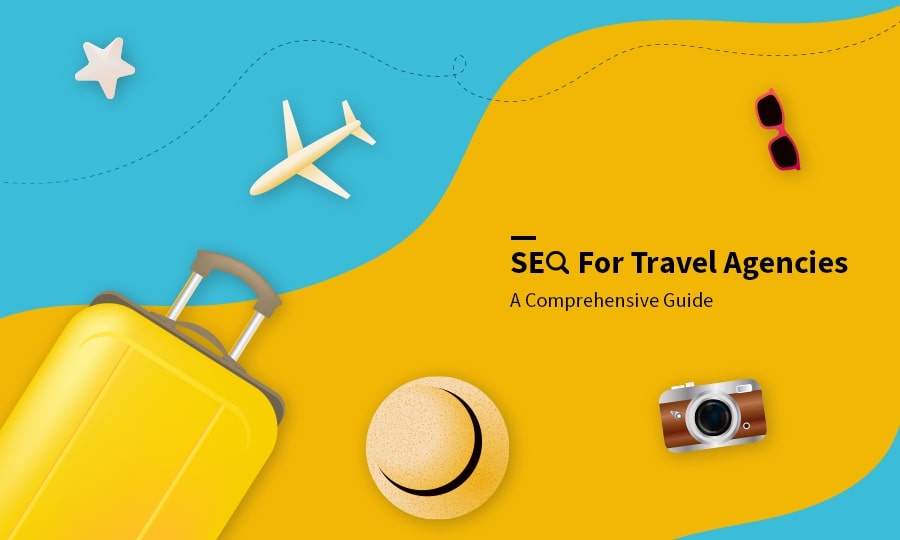10 Proven SEO Strategies for Travel Agencies
Travel agencies have no other choice but implement search engine optimization strategies today with this new landscape of competitors through the online medium in order to attract traffic, generate leads, and grow the business. Ranking high on Google means there is focused attention, some level of trust, and an upper-hand over competitions. This article will outline 10 Proven SEO Strategies for Travel Agencies that will drive you up the ranks in search engine rankings and organic traffic.
1. Target the Right Keywords
Proper keyword research is the key on which any successful SEO campaign is derived. A travel agency should derive the right set of keywords for which the potential customers are actively searching. Long-tail and broad keywords have been targeted: however, broad keywords like "best holiday packages" drive traffic but are very competitive. Long-tail keywords such as "affordable honeymoon packages in Bali" are much less competitive, drawing users with specific needs to them and likely to convert.
How to find the right keywords:
Google Keyword Planner: It provides you with search volume data and related keyword ideas
Competitor Analysis: Understand which keywords your competition ranks for
Search Intent: Determine whether a user is searching for information, ready to buy, or comparing.
Pro Tips: Write about the various stages of a traveler's journey in the order of research phase, planning phase, booking phase, and try to incorporate the relevant keywords at each phase.
2. On Page SEO
On-page optimization of a website refers to the process of making individual pages of a website rank better as well as get more relevant traffic. Certain areas that need concentration are many including;
Meta Tags See to it that your meta titles and descriptions for each page contain your targeted keyword and is attractive enough to click.
Headings:-H1, H2, H3 Utilize heading tags to organize content and insert your keyword properly.
URL Structure:- All of your URLs should be clean, short, and keyword-including. There should not be any random numbers or special characters.
Image Optimization:-Compress the file size of your image files and include alt text along with relevant keywords.
Link to relevant pages in your website:-Visitors will be redirected to that page using internal linking. The bots can understand the structure of your website and eventually, page authority will increase.
3. Create Good Quality Relevant Content
If there is no content, then there is no SEO. With a travel agency, creating good quality content interested in your audience's topics of interest has to be the top priority. Not only does Google prefer well-structured content answering actual questions but also one containing thorough information.
Types of Content Travel Agencies Should Create
Travel Guides: To create comprehensive guides on destinations or experiences including the activities will attract interested users on the research phase.
Sample itineraries: Create sample itineraries depending on destinations or types of traveler like family-friendly, adventure-seekers, etc
Travel Tips: Write about travel tips and news and destination insights
Customer stories: Like customer reviews where the customer shares his experiences is the perfect trust builder and eventually, the service will be availed
Pro Tip : Multimedia such as images, infographics, and videos will make content a hit and shareable that enhances engagement levels. The Greater the engagement rate, the greater is SEO.
Read More:- Marketing Strategy in Tourism Industry
4. Local SEO
This is where travel agencies can target local people searching for local tours or services. Proper implementation of sound local SEO would ensure your business gets viewed during local searches when a prospective customer is looking for services in his proximity.
Local SEO Tactics:
Google My Business: Claim and optimize your Google My Business profile, including business name, categories, address, contact number, and hours of operation.
NAP Consistency : Your business name, address and phone number (NAP) should be uniformized on both your website and social media profiles, online directories and so on.
Local Keywords: Use of keywords to include the location, such as "top travel agency in New York" or "Florida vacation deals."
Reviews: Request happy clients to give a great comment on Google and other similar platforms such as Yelp or TripAdvisor. Google always favors the businesses having robust reviews, locally searched.
5. Responsive Design
More than half of bookings are now coming from mobile devices; so, ensuring that your website is mobile-friendly is very critical. Mobile optimization now directly impacts your Google rankings, and poor performance on the mobile will drastically impact your search rank.
How To Optimize for Mobile
Responsive Design: Let your website automatically size itself to most devices so that it adapts to most screen sizes.
Fast Loading Speed: Image compression, browser caching, and minimized code help gain speed in loading. Google pays more heed to faster websites and gets them ranked higher.
Mobile-friendly Website: Simplify your navigation on your mobile for excellent user experience.
6. Link Building (Backlinks)
Backlinks-the number of other good websites that link to your website-are one of the critical ranking factors for search engine optimization. Quality backlinks indicate that a website is an authority in its niche and can be trusted.
Good Link Building Practices
Guest Blogging: Publish articles on travel blogs or sites related to your industry. In the article, link to your website.
Influencer Partnerships: Reach out to popular travel influencers or bloggers who can promote your services and link back to your site.
Press Releases: Write articles about company news or new offerings and share them with media outlets. It earns a mention, besides links.
Pro Tip: Never allow garbage or spammy low-quality backlinks from websites that are irrelevant because it can always hurt your efforts to improve your SEO.
7. Voice Search Optimization
Voice search is increasingly taking the center stage as smart device usage such as Alexa, Siri, Google Assistant is growing every single day. When traveling, people would use voice search to look for local businesses, check flight status or get general information on traveling.
How to Use Voice Search Optimization
Use Natural Language: People speak differently than they type, so use conversational long-tail keywords.
Answer Questions: The majority of voice search queries are questions. They are queries like "What's the best time to visit Paris?" You may add FAQs and answer directly to the most popular questions that clients ask when traveling.
Mobile-Friendly Content: Most of the voice searches happen with mobile phones, so the need for mobile optimization has increased even more.
8. Use Structured Data (Schema Markup)
This is actually referred to as schema markup. It's basically a code that you include on your website so that the search engines understand your content much better. With schema markup on travel agencies, the chances of appearing in rich results, such as travel snippets, reviews, and FAQs, are broadened.
Common Schema Types for Travel Agencies:
Organization Schema: It will provide the most significant business details, such as name, address, and contact info.
Travel Schema: Use this for tour packages, pricing, or special deals.
Schema-Rich Review: Return customer reviews within the results of a search, and, to boost click-through rate, possibly within the rich snippet.
Conclusion:
By performing these 10 Proven SEO Strategies for Travel Agencies, this will enhance rankability and allow for the travel agencies to generate more organic traffic through Google and convert them into visitors for future business. Remember that SEO is a long-term investment. Whatever effort you exert on SEO will pay off in due time, provided that you keep in touch with the latest SEO trends and monitor performance whilst fine-tuning these approaches to outdo others.
Read More:- Optimize PPC Campaigns of Travel Agencies

 Start your Travel Business with Our 7 Day Free Trial Website!
Start your Travel Business with Our 7 Day Free Trial Website!





